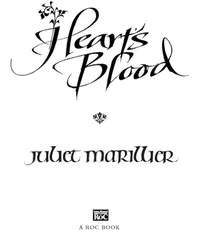Cybele's Secret - Juliet Marillier - Cybele's Secret
Здесь есть возможность читать онлайн «Cybele's Secret - Juliet Marillier - Cybele's Secret» весь текст электронной книги совершенно бесплатно (целиком полную версию без сокращений). В некоторых случаях можно слушать аудио, скачать через торрент в формате fb2 и присутствует краткое содержание. Жанр: Старинная литература, на русском языке. Описание произведения, (предисловие) а так же отзывы посетителей доступны на портале библиотеки ЛибКат.
- Название:Juliet Marillier - Cybele's Secret
- Автор:
- Жанр:
- Год:неизвестен
- ISBN:нет данных
- Рейтинг книги:5 / 5. Голосов: 1
-
Избранное:Добавить в избранное
- Отзывы:
-
Ваша оценка:
- 100
- 1
- 2
- 3
- 4
- 5
Juliet Marillier - Cybele's Secret: краткое содержание, описание и аннотация
Предлагаем к чтению аннотацию, описание, краткое содержание или предисловие (зависит от того, что написал сам автор книги «Juliet Marillier - Cybele's Secret»). Если вы не нашли необходимую информацию о книге — напишите в комментариях, мы постараемся отыскать её.
Juliet Marillier - Cybele's Secret — читать онлайн бесплатно полную книгу (весь текст) целиком
Ниже представлен текст книги, разбитый по страницам. Система сохранения места последней прочитанной страницы, позволяет с удобством читать онлайн бесплатно книгу «Juliet Marillier - Cybele's Secret», без необходимости каждый раз заново искать на чём Вы остановились. Поставьте закладку, и сможете в любой момент перейти на страницу, на которой закончили чтение.
Интервал:
Закладка:
“You should beware of Duarte Aguiar, Paula. He has great superficial charm, as no doubt you’ve noticed. Women follow him about in droves. But there’s a dark resolve hidden below the surface. And you’re young. You should not tangle with such a man.”
“I’m duly warned,” I said with a smile, my tone expressing a confidence I did not feel. Although the little I knew about the Portuguese was all bad, in a way I had enjoyed our awkward encounter and his easy banter. It had certainly added excitement to my day.
Our refreshments finished, we walked along the colonnade to a tall, arched doorway with panels of colored tiles on either side, red on blue. Irene made it clear Stoyan could not come into the library. Without comment, he placed himself just outside the door.
Irene’s collection was housed in a vast, airy chamber on two levels. The upper was furnished with crimson-cushioned divans and cunning brass stands to hold items at a convenient height for reading, while around the lower level, a step down, were shelves on which numerous bound books were stored flat. There were low tables holding writing materials and cedar chests suitable for scrolls and other documents.
Two Turkish women in robes and veils were seated cross-legged in a corner, poring over a faded manuscript laid out on a table before them. Their faces were uncovered, and they looked up and nodded to us as we entered.
“We have started a catalog,” Irene said, indicating a bound notebook lying open on a stand. “You’re welcome to look at that, or perhaps I can find something of particular interest?”
I hesitated. It had occurred to me last night that I might use this visit as an opportunity to seek out information about Cybele, something that might give Father and me the edge in our trading negotiations. Knowledge, I believed, was the strongest weapon in any battle, and a fierce bidding contest was quite like a war. If I could find material about Cybele’s legend here, or about the mysterious inscription on the artifact, we might use that to convince Barsam the Elusive that we were the right buyers for the piece, even in the face of some other merchant making an equal offer. But I wasn’t going to reveal trade secrets to Irene, friendly as she was. “I like myths and legends,” I said. “Is there anything about the local folklore? The only thing is, although I can read Greek, Latin, and French, I would have problems with Arabic script. I learned a little Turkish when I was in Braşov, but only speaking, not reading.”
Irene’s lovely eyes widened. “Your education must have been remarkable. We may have something of that kind. There have been several recent donations to the collection, and we still need to go through them. You realize, I suppose, that the high language of the Ottomans, used for scholarly documents, is a peculiar mixture of Arabic, Turkish, and Persian? If you wish to pursue your studies here in Istanbul, you’ll need help with translation.”
“I know,” I said, wondering how long it would take to learn Arabic.
“I will ask Ariadne to see what she can find for you,” Irene said, beckoning to a young woman in a green gown who had been working at another table. “Meanwhile, perhaps you’d like to leaf through the catalog, as far as it goes.”
I settled myself in a spot where Stoyan could keep me in view while Irene went over to talk to the Turkish women. After a while, Ariadne returned, her pretty face bearing an expression of apology.
“Kyria, I cannot locate anything of the precise nature you require,” she said. “That is not to say it does not exist somewhere in the collection. A great deal of our material is yet unsorted. Our storeroom holds many loose papers, individual leaves of manuscripts and so on.”
“Perhaps I could look through some of those papers?” I asked her. “I could make a note of what they are as I go—that might be useful for your catalog. I have experience at that kind of work.” I looked around for Irene, not sure if it was appropriate for me to make such a suggestion, but it seemed she had gone out. I caught sight of Stoyan in the doorway, his eyes steady on me.
Ariadne did not invite me to investigate the storeroom, but she brought out a large box filled with single leaves of paper and parchment, none of which appeared to have come from the same original manuscript. “There are numerous boxes of this kind,” the girl said. “Kyria Irene receives many such gifts. In time they will be itemized and recorded. I hope you will find something of interest.” She placed the box beside my table.
For a scholar like me, this was akin to being handed a treasure chest. I explored the box’s contents, handling each sheet with delicacy. Most were in Arabic script. Some were illustrated, perhaps poetry or histories. Some I could read; there was a single sheet from a play in Greek, perhaps torn from a bound book, and a page of figures with Latin annotations. I set out each item neatly on the table as I worked my way deeper into the box.
A fragment caught my eye. I lifted it out with extreme care, for it was ancient and fragile. The script was ornate and regular. I guessed the language was Persian, for one or two such pieces had passed through Father’s hands over the years, and I recognized the style of decoration: tiny, vivid illustrations and elaborate hand-drawn borders full of scrolls and curlicues.
The pictures were indeed strange. It was not clear whether the figures in them were of men, women, or animals. They reminded me vividly of the Other Kingdom, the fairy realm my sisters and I had visited every full moon through the years of my childhood. While my sisters were dancing, I had spent the better part of those nights in company with a group of most unusual scholars, and they had taught me to look beyond the obvious. Either these were images of just such a magical place, or they were heavy in symbolism. I could see a warrior with the head of a dog, a cat in a hooded cloak, a blindfolded woman with a wolf, someone swinging on a rope…
The little paintings were so finely detailed I needed my spectacles, which I kept on a chain around my neck and generally used only for very close work. After I had been staring at the page for a while, I started to see a pattern there beyond the regular design of the decorative border. Almost hidden in the dancing confusion of images was a sequence of tiny squares, each different, each showing a sprinkling of lines, twists, and blobs. They were executed in a contrasting style, almost as if they were an afterthought. They seemed familiar, teasing at my memory.
I glanced up. Ariadne was seated at a table on the lower level and was busy writing. Irene had not returned. In a shadowy corner of the library, there now sat another woman, black-robed, with a needle and thread in one hand and a tattered old cloth in the other. She was fully veiled, save for her eyes, and in the semidark where she sat, even they could not be clearly seen, but I sensed she was watching me. I shivered, remembering the strange figure I had seen, or thought I’d seen, on the Esperança at the dock.
I turned my attention back to the manuscript. What was it about those little squares that was so familiar? They looked quite out of place, as if designed to catch the reader’s attention. A code? A secret message? Frowning, I turned the page over and saw something I had missed before, words in minuscule writing inserted between border and main text. It was not Persian. It was not Greek, Latin, or any other language I knew. And yet I understood. Find the heart, someone had written, for there lies wisdom. The crown is the destination. A cold sensation passed through me, like a warning of danger. I was gripped by the disturbing feeling that this message, scrawled here by someone I didn’t know, was meant for me. It was an instruction, an order.
Читать дальшеИнтервал:
Закладка:
Похожие книги на «Juliet Marillier - Cybele's Secret»
Представляем Вашему вниманию похожие книги на «Juliet Marillier - Cybele's Secret» списком для выбора. Мы отобрали схожую по названию и смыслу литературу в надежде предоставить читателям больше вариантов отыскать новые, интересные, ещё непрочитанные произведения.
Обсуждение, отзывы о книге «Juliet Marillier - Cybele's Secret» и просто собственные мнения читателей. Оставьте ваши комментарии, напишите, что Вы думаете о произведении, его смысле или главных героях. Укажите что конкретно понравилось, а что нет, и почему Вы так считаете.











